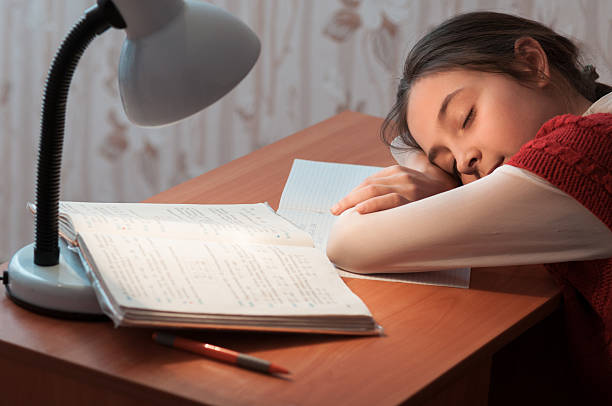For many students, the nighttime struggle is real. The pressure of college life can make it hard to unwind, leading to poor sleep, which then makes everything a hundred times harder. The good news is, you don’t have to let it control you. A good morning routine sets you up for success. Similarly, a thoughtful night routine helps reduce stress, calm your mind, and ensure you get the rest you need.
This guide is your roadmap to building a powerful night routine. It’s not about doing everything at once. It’s about creating a series of small, intentional habits that signal to your brain and body that it’s time to relax. We’ll cover ten simple steps that can help you finally fall asleep faster and wake up feeling refreshed and ready to take on the day.
Why a Night Routine is Crucial for Students Success
Contents
- 1 Why a Night Routine is Crucial for Students Success
- 2 2. Content to Add to an Existing Section
- 3 3. Content to Add to an Existing Section
- 4 10 Steps to an Ultimate Night Routine to Reduce Stress
- 4.1 1. Set a “Power Down” Alarm: The Digital Sunset
- 4.2 2. Organize for Tomorrow: Tame the Chaos Before Bed
- 4.3 3. Digital Detox: Put the Phone Away
- 4.4 4. Have a Light, Healthy Snack
- 4.5 5. Wind Down with a Non-Screen Activity 📖
- 4.6 6. Practice Gratitude or Journaling
- 4.7 7. Take a Warm Shower or Bath 🛀
- 4.8 8. Get Comfortable and Control the Environment 🛏️
- 4.9 9. Do Some Light Stretching or Meditation 🧘
- 4.10 10. Practice Deep Breathing 🌬️
- 5 How to Build Your Perfect Routine (And Stick to It!)
- 6 Frequently Asked Questions (FAQs)
Sleep isn’t a luxury—it’s a superpower. For students, getting enough quality sleep is one of the most important things you can do for your academic and personal well-being. Here’s why a consistent night routine is a game-changer:
- Memory and Learning: When you sleep, your brain is hard at work. It sorts through all the information you learned during the day and moves it from short-term memory to long-term memory. This process, called memory consolidation, is why a good night’s sleep is more important for a test than cramming all night.
- Stress Management: A lack of sleep increases the stress hormone cortisol in your body. By getting a good night’s rest, you lower your stress levels, which helps you feel calmer, think more clearly, and manage your emotions better.
- Quality sleep boosts your immune system, helps you stay at a healthy weight, and supports your mental health. It’s a key part of your overall student well-being.
- Productivity: When you’re well-rested, you’re more focused, more creative, and more efficient. A good night’s sleep sets you up for a highly productive day.
The Science of Sleep and Academic Performance
If you want to ace your exams, you need to prioritize sleep. It’s more than just feeling rested; sleep is when your brain does its most important work for learning. During deep sleep, your brain solidifies the information you learned during the day. Think of it like a librarian putting new books away on the right shelves. This process, known as memory consolidation, is a major reason why pulling an all-nighter before a test is a bad idea. A tired brain can’t remember facts as well or think critically.
Sleep also cleans your brain. While you’re sleeping, a system called the glymphatic system flushes out toxins that build up during the day. When you don’t get enough sleep, these toxins can lead to brain fog and poor concentration. It’s like trying to think clearly in a dirty room. Getting a full night’s sleep allows this system to do its job, so you wake up with a clear head, ready for a day of problem-solving and focus. When you focus on your night routine, you’re not just resting. You’re also boosting your academic performance.
2. Content to Add to an Existing Section
Please add this new paragraph to the end of the “Organize for Tomorrow” section, right before the H3 heading “3. Digital Detox: Put the Phone Away.”
A great way to keep this step from creating more anxiety is to use the Three-Item Rule. Instead of making a long, overwhelming to-do list, just pick the three most important things you need to do tomorrow. Maybe it’s finishing a specific chapter, starting a research paper, and going to your professor’s office hours. These three tasks are your non-negotiables. Everything else is just a bonus. This simple rule helps you focus on what really matters, so you can go to bed with a clear, calm mind.
3. Content to Add to an Existing Section
Please add this new paragraph to the end of the “Wind Down with a Non-Screen Activity” section, right before the H3 heading “6. Practice Gratitude or Journaling.”
There are many simple, low-effort activities you can choose from. You could listen to a relaxing podcast or an audiobook that isn’t too stimulating. You could put on some calm, instrumental music and just lie on your bed with your eyes closed, letting your mind wander. Even do a simple chore like wiping down your desk or folding a few clothes. The key is to pick something that helps you feel productive and calm, without the distraction or stimulating blue light from a screen. This is a time for your brain to disconnect and just be.
10 Steps to an Ultimate Night Routine to Reduce Stress
These steps are designed to help you transition from a busy day to a calm, restful night. The goal is to create a peaceful “wind-down” hour before you go to bed.
1. Set a “Power Down” Alarm: The Digital Sunset
We’re so used to setting alarms to wake up, but what about an alarm to wind down? About an hour before you want to go to sleep, set an alarm on your phone. When it goes off, it’s a signal to you that the “wind-down hour” has officially begun.
- The Problem: The blue light from your phone, laptop, and tablet screens messes with your body’s natural sleep cycle. This light tells your brain that it’s still daytime, which stops your body from producing melatonin, the hormone that makes you feel sleepy.
- The Solution: Use this alarm as your cue to put away all screens. Turn on “Night Shift” mode on your phone or use a blue light filter app on your computer if you absolutely have to use it.
- The “Why”: A dedicated “power down” time helps your body naturally start to produce melatonin, making it easier to fall asleep once you get into bed.
2. Organize for Tomorrow: Tame the Chaos Before Bed
Nothing creates more anxiety than waking up to a messy room and a scattered mind. Taking just 10 minutes to prepare for tomorrow can save you a lot of stress.
- The Problem: Lying in bed thinking about everything you have to do tomorrow can keep your brain active and prevent you from falling asleep.
- The Solution: Take out your planner or a piece of paper and write down your top three priorities for the next day. You can also pack your backpack, lay out your clothes, and make sure your space is organized.
- The “Why”: Getting your thoughts and plans down on paper helps to get them out of your head. You’re telling your brain, “Okay, that’s handled. Now we can rest.”
3. Digital Detox: Put the Phone Away
We mentioned the “power down” alarm, but this step is so important it deserves its own focus. The habit of scrolling through social media or watching videos in bed is one of the biggest sleep destroyers for students.
- The Problem: Social media can make you feel anxious or stressed. It’s a constant stream of information that keeps your brain on high alert, which is the opposite of what you need for sleep.
- The Solution: Put your phone on a charger in another room, or at least across the room from your bed. This makes it impossible to mindlessly scroll once you’re under the covers.
- The “Why”: Taking a break from the digital world helps your mind relax. It lets you disconnect from daily events and the stress of comparing yourself to others. It’s a crucial step in preparing your mind for rest.
4. Have a Light, Healthy Snack
Going to bed hungry can make it hard to fall asleep and can even cause you to wake up in the middle of the night. On the other hand, eating a big, heavy meal can lead to indigestion and discomfort.
- The Problem: A growling stomach or an overly full one can keep you awake.
- The Solution: A small, healthy snack about 30-60 minutes before bed can do the trick. A handful of almonds, a banana, or a bowl of oatmeal can help stabilize your blood sugar levels and prevent late-night cravings.
- The “Why”: Certain foods, like almonds and bananas, contain nutrients that can help with sleep. The goal is to feel just satisfied, not stuffed.
5. Wind Down with a Non-Screen Activity 📖
Instead of watching a show or scrolling, choose an activity that helps you relax and disconnect. This is your personal time to de-stress and calm your mind.
- The Problem: Your brain needs a transition from “work mode” to “rest mode.” Jumping straight into bed from studying or watching TV doesn’t give it that signal.
- The Solution: Read a physical book (not an e-reader!), listen to a calm podcast or audiobook, or do a simple hobby like knitting or drawing.
- The “Why”: These activities don’t involve a screen, so they won’t disrupt your sleep hormones. They also give your mind something peaceful to focus on, helping to get rid of racing thoughts.
6. Practice Gratitude or Journaling
Ending your day on a positive note can have a huge impact on your mood and stress levels. It’s a simple but powerful way to reframe your thoughts.
- The Problem: It’s easy to focus on all the bad things that happened in the day, or all the things you still have to do. This can lead to anxiety.
- The Solution: Spend 5-10 minutes writing in a journal. You can write about three things you’re grateful for from the day, or you can do a “brain dump” of everything you’re worried about.
- The “Why”: A gratitude practice shifts your focus from what’s wrong to what’s right. A “brain dump” helps you get all your worries out of your head and onto a page, so they don’t keep you up at night.
7. Take a Warm Shower or Bath 🛀
A warm shower or bath is a great way to physically relax and prepare your body for sleep.
- The Problem: Tense muscles from a long day of sitting and studying can make it hard to get comfortable.
- The Solution: Taking a warm shower or bath about an hour before bed. The warm water relaxes your muscles and soothes your mind.
- The “Why”: The warmth of the water actually raises your body temperature. When you get out, your body starts to cool down, which is a natural signal that it’s time for sleep. This process is a huge help for people who struggle to fall asleep.
8. Get Comfortable and Control the Environment 🛏️
Your bedroom should be a sanctuary for sleep. Making a few small changes to your environment can make a big difference in the quality of your rest.
- The Problem: A cluttered, bright, or noisy room can make it hard to relax and fall asleep.
- The Solution: Make your room as dark, cool, and quiet as possible. Use blackout curtains to block out light. Set the temperature to a cool, comfortable level. If you have noisy roommates or a loud neighborhood, consider using a fan or a white noise app.
- The “Why”: A dark room helps your body produce melatonin. A cool room is optimal for sleep, and a quiet environment prevents outside distractions from waking you up.
9. Do Some Light Stretching or Meditation 🧘
If you spend a lot of time sitting at a desk, your body might feel stiff and tense. Light stretching can help release that tension.
- The Problem: Physical tension can lead to mental tension. If your body is uncomfortable, it’s hard for your mind to relax.
- The Solution: Do some gentle stretches for your neck, shoulders, and back. You can also try a guided meditation for sleep. Many apps offer short, guided sessions that can help you relax your mind and body.
- The “Why”: Gentle movement releases tension from your muscles. Meditation calms your nervous system, which helps your heart rate and breathing slow down, preparing your body for sleep.
10. Practice Deep Breathing 🌬️
This is the easiest and fastest way to calm your body down. If you’re lying in bed and your mind starts to race, deep breathing can bring you back to a calm state.
- The Problem: When you’re stressed, your breathing is often shallow and fast. This keeps your body in a state of stress, making it hard to fall asleep.
- The Solution: Lie on your back and place one hand on your stomach. Take a slow, deep breath in through your nose, letting your stomach rise like a balloon. Hold it for a few seconds, and then slowly exhale through your mouth. Repeat this 5-10 times.
- The “Why”: This type of breathing activates your body’s parasympathetic nervous system, which is responsible for “rest and digest.” It slows your heart rate and tells your body that it is safe to relax and sleep.
How to Build Your Perfect Routine (And Stick to It!)
Starting a new night routine can feel like a lot of work, but you don’t have to do all 10 steps at once. The key is to start small and build one habit at a time. Pick just one or two of the ideas above and try them for a week. Once they feel natural, add another one. Be patient with yourself, and remember that even small steps can lead to big results.
Your routine doesn’t have to be perfect. The goal is consistency. Even on days when you’re busy or stressed, try to do your “non-negotiable” routine—maybe it’s just putting your phone away and doing some deep breathing. Your brain will thank you for the consistent signal that it’s time to rest.
Frequently Asked Questions (FAQs)
Q1: How long should my night routine be?
A: Aim for about 30 to 60 minutes. The most important thing is that it feels like enough time for you to truly unwind, not just another task on your to-do list.
Q2: I have to study late at night. How can I still have a good routine?
A: You can create a mini-routine after you finish studying. Even just 15 minutes can help. Start by putting your screens away. Then, do some light stretching. Finally, practice deep breathing. This lets your brain know it’s time to calm down.
Q3: What if my roommates are noisy?
A: If you can’t control the noise, you can try to block it out. A white noise machine or a fan can help. You can also try using earplugs to block out sound.
Q4: Is it okay to use a laptop in bed if it has a blue light filter?
A: While a blue light filter helps, it’s still best to avoid working or using a laptop in bed. Your brain starts to connect your bed with work and stress, which makes it harder to relax. It’s better to keep your bed a space just for sleep.
Q5: How can I make my bedroom more of a “sleep sanctuary”?
A: Keep your bed tidy and clean. Make sure the room is dark and cool. Avoid doing things like eating, studying, or watching TV in your bed. When you do all your other activities somewhere else, your brain learns to associate your bed only with sleep.





